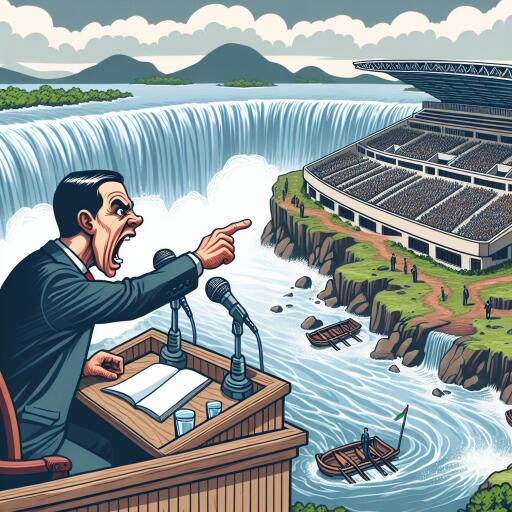
Opposition Legislator Raises Environmental Concerns Over Planned Stadium in Victoria Falls
In a recent parliamentary debate, a fervent discussion emerged regarding the construction of a new cricket stadium in the iconic resort town of Victoria Falls, a matter that has sparked concerns over environmental protection and biodiversity conservation. The heart of the debate revolves around fears that this development might negatively impact the locale known for its breathtaking natural scenery and its status as a UNESCO World Heritage site.
The proposal, endorsed last week by the government, has been met with resistance, notably from an opposition member of parliament, who voiced apprehensions about the potential harm such a project could inflict on Victoria Falls’ unique ecosystem. The legislator’s concerns underscored the risks to the area’s wildlife, flora, and the broader ecological integrity that could arise from the stadium’s construction.
During her impassioned plea in parliament, the opposition lawmaker called on the Ministers of Tourism and Sports to reconsider the location for the proposed stadium, suggesting that other regions in Zimbabwe could accommodate the development without endangering the country’s cherished natural resources. This proposal not only aims to safeguard the environmental allure that attracts numerous tourists to Zimbabwe, particularly to Victoria Falls, but also to balance development needs with ecological preservation.
She elaborated on the crucial role of Zimbabwe’s tourism sector, which is significantly supported by its natural attractions, including its rich wildlife heritage. Highlighting that Zimbabwe ranks as the third largest in terms of wildlife resources, she questioned the wisdom of placing the development in a location that could compromise these assets. Furthermore, she hinted at the possibility of spreading economic benefits across the country by choosing alternative sites for the stadium, thereby preserving the unique environmental character of Victoria Falls.
The lawmaker also warned of the risk to Victoria Falls’ UNESCO World Heritage status, recalling previous instances where development pressures threatened its standing. The conservation of this site, she argued, is not just about preserving a natural wonder, but also about maintaining the global recognition that comes with the UNESCO designation, which could be jeopardized by the stadium project.
In response, the Speaker of the National Assembly acknowledged the concerns raised and reassured that both the master plan for Victoria Falls and an Environmental Impact Assessment (EIA) would be thorough enough to address and mitigate any negative effects on the environment. He further hinted at an existing plan that considers the ecological sensitivity of the area, including its proximal relationship with Hwange National Park, suggesting optimism that concerns regarding environmental degradation will be allayed.
This discourse highlights a critical intersection of development, conservation, and tourism management, underscoring the delicate balance required to ensure that infrastructural advancements do not come at the expense of Zimbabwe’s natural heritage. As the debate continues, the importance of rigorous environmental assessments and robust public discourse is ever more apparent, ensuring that decisions are informed by a commitment to sustainability and the protection of natural treasures like Victoria Falls.





Leave a Reply